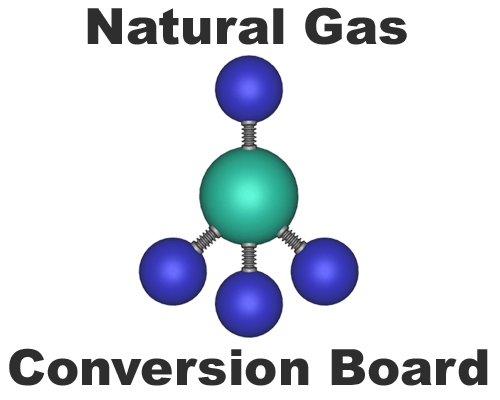|
The Award for Excellence in Natural Gas Conversion
|
%20(640x429).jpg)
The Natural Gas Conversion Board and its International Scientific Advisory Committee sponsor and steward the Award for Excellence in Natural Gas Conversion, presented every three years during the Natural Gas Conversion Symposium to recognize significant and enduring contributions to science and technology for the conversion of natural gas to valuable products.
The award has been presented just seven times in the past twenty-eight years, and recognizes individuals who - in the eyes of their peers - have made noteworthy contributions in the field of natural gas conversion and the development of technologies that are likely to play an important part in meeting the world's chemical and fuel requirements in the years ahead.
The first Award for Excellence in Natural Gas Conversion was presented in Sydney Australia to Jack Lunsford of Texas A&M University. Most recently the honor was awarded to Xinhe Bao of the Dallian Institute of Chemical Physics. The Award Committee consists of the previous three winners of the Award, and members of the International Scientific Advisory Committee may nominate candidates to the Committee. Awardees are given an honorarium and invited to give a plenary lecture at the symposium, and become members of the NGCB if they are not already. The next award will be presented in San Antonio, Texas, on the occasion of the 12th Natural Gas Conversion Symposium. | |
| The Awards |
| Year |
Event |
Location |
Awardee |
| 1993 |
NGCS 3 |
Bondi Beach, Sydney, Australia |
Jack Lunsford |
| 1998 |
NGCS 5 |
Taormina, Sicily, Italy |
Jens Rostrup-Nielsen |
| 2001 |
NGCS 6 |
Girdwood, Alaska, United States |
Lanny Schmidt |
| 2004 |
NGCS 7 |
Dalian, China |
Enrique Iglesia |
| 2007 |
NGCS 8 |
Natal, Brazil |
David Trimm |
| 2010 |
NGCS 9 |
Lyon, France |
Anders Holmen |
| 2013 |
NGCS 10 |
Doha, Qatar |
Krijn de Jong |
| 2016 |
NGCS 11 |
Tromsø, Norway |
Xinhe Bao |
|
| The Awardees |
|
Xinhe Bao
Dalian Institute of Chemical Physics
People's Republic of China |
|
|
Professor Xinhe Bao has been chosen as the recipient of the 2016 Award for Excellence in Natural Gas Conversion. The Award is presented every three years during the International Natural Gas Conversion Symposium to recognize enduring and significant contributions to science and technology for conversion of natural gas to valuable products. The previous award recipients are Krijn de Jong (2013), Anders Holmen (2010), David Trimm (2007), Enrique Iglesia (2004), Lanny Schmidt (2001), Jens Rostrup-Nielsen (1998), and Jack Lunsford (1993). One of the leading scientists in the field of catalysis and gas conversion, Professor Bao delivered a plenary lecture and was presented with the Award at 11th Natural Gas Conversion Symposium in Tromsø, Norway.
His ability to combine theory, model catalysts, and technical catalysis in a very original manner has led to a number of breakthrough developments with both scientific and industrial impact. As specific contributions to the field of natural gas conversion three topics are highlighted. Firstly, the direct conversion of methane to aromatics using bifunctional Mo/ZSM-5 catalysts has been studied extensively by Professor Bao with important new structure-performance relationships that have enabled higher aromatic yields. Secondly, CO hydrogenation to fuels and chemicals has been investigated with special reference to the role of confinement of nanoparticles in catalysis. Thirdly, direct conversion of methane to lower olefins has been realized for the first time using a catalyst with isolated iron sites, with interest in this finding noted from both the scientific community and industry.
Professor Bao has been a long-standing leader in research programs on natural gas conversion related research in China. He acts as chair and board member of international scientific conferences and was the chair of the 7th Natural Gas Conversion Symposium in Dalian. He serves on the editorial boards of a wide range of journals and book series relevant to natural gas conversion. In 2017 Professor Bao was appointed the 10th President of the University of Science and Technology of China.
|

Xinhe Bao
|
|
Krijn de Jong
Utrecht University
The Netherlands
|
|
|
Professor Krijn de Jong was presented with the Award for Excellence in Natural Gas Conversion in 2013 at the 10th Natural Gas Conversion Symposium in Doha, Qatar.
Professor de Jong is recognized for consistently making noteworthy contributions to the field of natural gas conversion and the development of technologies that are likely to play an important role in meeting the world's chemical and fuel requirements in the years ahead. These contributions are based on a powerful combination of scientific excellence, originality and societal relevance.
In particular he has made eminent contributions to the synthesis, structural characterization, fundamental understanding and utilization of solid catalysts for the conversion of natural gas to fuels and chemicals. Specific highlights include his research on cobalt particle size effects for Fischer-Tropsch synthesis, and supported iron nanoparticles for the direct conversion of synthesis gas to lower olefins. In addition, Professor de Jong has served as a leading figure both nationally and internationally in his field of catalysis and chemistry, via chair and board membership roles in conferences, program committees, advisory councils, professional associations, and editorial board roles for leading international scientific journals and book series.
Last but not least, de Jong is also recognized for being an inspirational and driven teacher, using his didactic talent to equip a younger generation with the skills necessary to make contributions themselves to technology development in natural gas conversion and other areas.
|
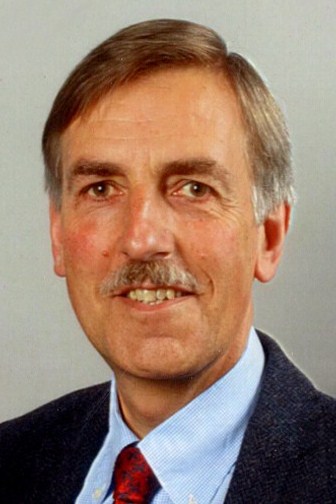
Krijn de Jong
|
|
Anders Holmen
Norwegian University of Science and Technology
Trondheim, Norway |
|
|
Professor Anders Holmen was presented with the NGCB's Award for Excellence in Natural Gas Conversion in 2010 at the 9th Natural Gas Conversion Symposium in Lyon, France.
Professor Holmen is recognized for his achievements in advancing concepts and practical applications of direct and indirect routes for the efficient utilization of natural gas. He has contributed fundamental concepts for the conversion of methane to acetylene in high-temperature short-contact time reactors. His research group has developed and used methods for measuring the dynamics of carbon formation during methane reactions at conditions relevant to industrial practice, and for the elucidation of the kinetics and mechanism of partial oxidation of light alkanes.
Throughout his career, Holmen has contributed to the understanding and practice of Fischer-Tropsch synthesis, specifically by unravelling the complex effects of water on reaction rate and selectivity and the role of Co crystallite size and of supports on catalyst reactivity and stability.
|
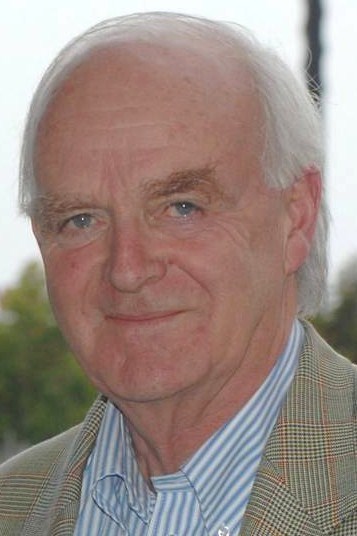
Anders Holmen
|
|
David Trimm
Commonwealth Scientific and Industrial Research Organisation (CSIRO)
Sydney, Australia |
|
|
Professor David Trimm received the NGCB's Award for Excellence in Natural Gas Conversion in 2007 on the occasion of the 8th Natural Gas Conversion Symposium in Natal, Brazil.
Professor Trimm was one of the founders of the NGCS series, and to a large extent his professional work - spanning more than four decades - dealt with important reactions in the conversion of natural gas.
During his time at Imperial College, London, he was a pioneer in the study and explanation of the mechanism of carbon formation on metal catalysts, resulting in a number of significant publications and doctoral degrees. This experience was applied in studies of the complex mechanism of coke formation in pyrolysis (steam cracking) with early work on coupling of homogeneous and heterogeneous reactions. Other studies dealt with catalytic combustion with a view to practical applications.
Over the course of a long career in Australia, Trimm continued his scientific work at the University of South Wales while contributing to the analysis of the feasibility of GTL projects for Australia through his work at CSIRO and as an advisor to the government.
Through his achievements Trimm served as the link between scientific, industry, and policy making bodies, a skill essential to promoting new technologies for gas conversion and a philosophy that reflects the spirit of the Natural Gas Conversion Symposium's objectives.
|
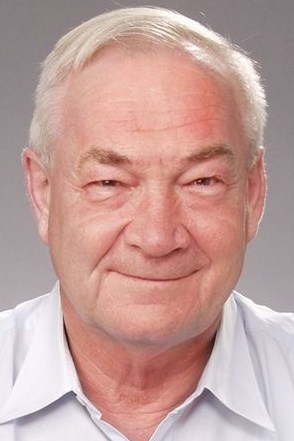
David Trimm
|
|
Enrique Iglesia
University of California, Berkeley
United States of America |
|
|
Professor Enrique Iglesia was presented with the Award for Excellence in Natural Gas Conversion in 2004 during the 7th Natural Gas Conversion Symposium in Dalian, China.
Professor Iglesia was recognized for his substantial contributions to the fundamental understanding of gas conversion chemistry and engineering. For years Prof. Iglesia has been involved in studies of heterogeneous catalysts for the direct and indirect conversion of methane to higher hydrocarbons, uses of light alkanes in desulfurization and de-NOx, reactions, dehydrogenation of light alkanes to alkenes and aromatics, and catalytic reforming and cracking processes for low-temperature isomerization, alkylation, and combustion reactions.
Current research projects also include the practical use of catalytic membranes to combine reaction and separation functions in alkane dehydrogenation and conversion processes and the development of theoretical methods for predicting the structure, transport, and chemical properties of porous solid catalysts.
His research group at Berkeley combines expertise and facilities for the synthesis of novel catalytic solids, their in-situ structural and mechanistic characterization, and the detailed modeling of kinetic and transport processes in catalytic processes relevant to oil refining and petrochemical synthesis.
|
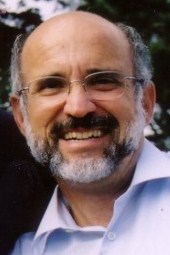
Enrique Iglesia
|
|
Lanny Schmidt
University of Minnesota
United States of America |
|
|
Professor Lanny Schmidt was presented with the Award for Excellence in Natural Gas Conversion at the 6th Natural Gas Conversion Symposium in Girdwood, Alaska in 2001.
Recognized by his peers for his substantial contributions to the fundamental understanding of gas conversion chemistry and engineering, Professor Schmidt's research focuses on various aspects of the chemistry and engineering of chemical reactions on solid surfaces. Reaction systems of recent interest are catalytic combustion processes to produce products such as syngas, olefins, oxygenates by partial oxidation and NOx removal and incineration by total oxidation.
Topics of research include the characterization of adsorption and reactions on well-defined single crystal surfaces; steady state and transient reaction kinetics under conditions from ultrahigh vacuum to atmospheric pressure; the characterization of small particles and the correlation of catalytic activity with particle microstructure; and catalytic reaction engineering in which detailed models of reactors are constructed to simulate industrial reactor performance, with particular emphasis on chemical synthesis and on catalytic combustion.
|
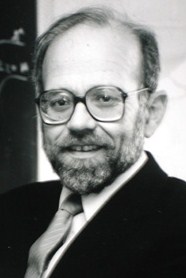
Lanny Schmidt
|
Jens Rostrup-Nielsen
Haldor Topsoe
Lyngby, Denmark |
|
|
Dr. Jens Rostrup-Nielsen was presented with the NGCB's Award for Excellence in Natural Gas Conversion in 1998 on the occasion of the 5th Natural Gas Conversion Symposium in Taormina, Sicily.
A founder of the NGCS series, Dr. Rostrup-Nielsen has been instrumental in helping the NGCS series to represent the perspectives of both the scientific and industrial communities. Rostrup-Nielsen is a founding member of the Scientific Council of the European Research Council (ERC), and is the only representative from industry. |
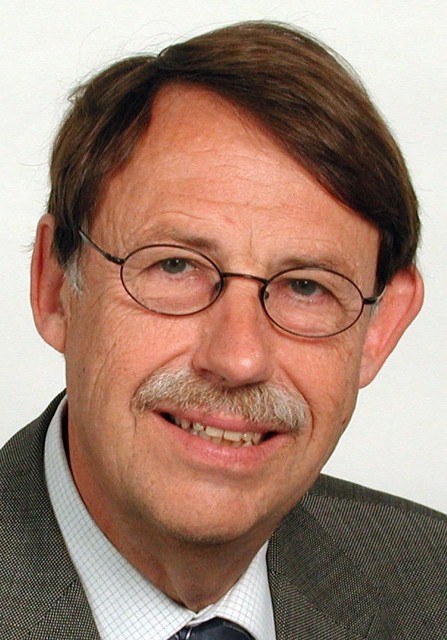
Jens Rostrup-Nielsen
|
Jack Lunsford
Texas A&M University
United States of America |
|
|
The first Award for Excellence in Natural Gas Conversion was given to Professor Jack Lunsford of Texas A&M University on the occasion of the 3rd Natural Gas Conversion Symposium in Sydney, Australia.
Using spectroscopic techniques to identify active centers and reaction intermediates, Professor Lunsford and his work are well known within the international scientific community. His research with surface-generated gas-phase radicals paved the way for the basic understanding of the mechanics of oxidative-coupling reactions, particularly those involving methane, and use in high-value industry applications.
Lunsford's research is devoted to fundamental studies of catalysts and catalytic reactions that are of technological importance, and the discovery of new principles that have broad application in catalysis. An example is the role of surface generated gas phase radicals in catalytic reactions. Speculation concerning the role of such radicals has appeared in the literature for many years; however, only recently have techniques been developed for detecting these radicals and demonstrating that radical reactions constitute a major pathway for the formation of the desired products.
A major focus of his research is the partial oxidation of methane to more useful compounds, such as ethane and methanol. Current work includes attempts to synthesize new catalysts that are more selective in the activation of methane, along with research to determine the types of oxygen ions that are capable of activating methane. FTIR, XPS, ESR, and Raman spectroscopies are used in these experiments. A matrix-isolation ESR system is being used to explore the rates of reaction between methyl radicals and metal oxide surfaces. Other surface-generated radicals are detected by laser-induced fluorescence spectroscopy. |
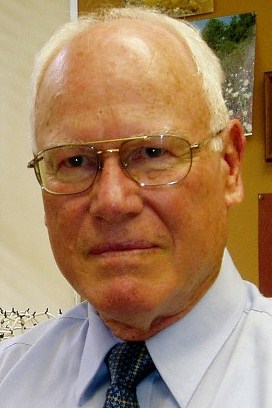
Jack Lunsford
|
|
| |
|
|
|
|
|
